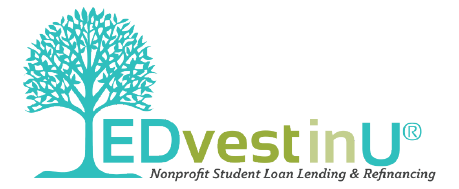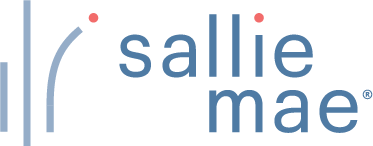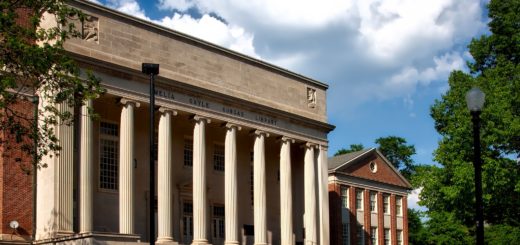Nursing School Cost and How to Pay For It
Our goal is to give you the tools and confidence you need to improve your finances. Although we receive compensation from our partner lenders, whom we will always identify, all opinions are our own. Credible Operations, Inc. NMLS # 1681276, is referred to here as “Credible.”
Becoming a nurse generally isn’t as expensive as becoming a doctor, but it still isn’t cheap.
The exact cost of nursing school will depend on the kind of schooling you choose but could range anywhere from $3,000 up to $100,000, according to NurseJournal.
If you’re wondering how much nursing school is and how to pay for it, here’s what you should know:
How much is nursing school?
There are several types of education programs available for becoming a nurse. These programs will range in price depending on how advanced they are as well as whether you choose to attend an in-state or out-of-state school.
Here’s a look at the typical nursing school costs you can expect by program:
| Program | Average cost | Program length |
| Practical Nursing Diploma | $4,000 to $15,000 | 1 year |
| Associate Degree in Nursing | $6,000 to $20,000 | 2 to 3 years |
| Bachelor of Science in Nursing | $40,000 to $100,000 | 4 years |
| Master of Science in Nursing | $35,000 to $70,000 | 1 to 2 years |
| Doctor of Nursing Practice | $30,000 to $70,000 | 2 to 3 years |
Practical Nursing Diploma
Average cost: $4,000 to $15,000
One of the quickest ways to begin working as a nurse is to become a licensed practical nurse (LPN) or licensed vocational nurse (LVN).
These nurses work as assistants to physicians and registered nurses (RN) in various healthcare facilities, such as hospitals, long-term care facilities, and nursing homes.
To begin your career as an LPN or LVN, you’ll need to earn a Practical Nursing Diploma — these programs usually take one year to complete.
Associate Degree in Nursing
Average cost: $6,000 to $20,000
If you choose to earn an Associate Degree in Nursing (ADN), you’ll be trained to work as an RN over the course of two years. RNs with associate degrees can work in hospitals, doctor’s offices, outpatient care centers, and various other healthcare facilities.
Keep in mind that with the recent push for nurses to obtain a bachelor’s degree, your career options could be limited by some employers if you pursue an ADN instead.
Bachelor of Science in Nursing
Average cost: $40,000 to $100,000
Another way to become an RN is by earning a Bachelor of Science in Nursing (BSN), which generally takes about four years.
Like an ADN, a BSN will train you in the skills you need to perform nursing care — however, you’ll also receive more extensive education in research, social sciences, leadership, and management as well as public and community health.
Generally, a BSN-prepared nurse will be better equipped to handle more complex procedures compared to an ADN-prepared nurse. Because of this, BSN nurses can earn $80,000 or more per year while ADN nurses earn an average salary of just over $74,000, according to NursingProcess.org.
However, an ADN could still be a good place to start your nursing career. Many students choose to earn their ADN so they can begin working as a nurse before returning to school to pursue a BSN.
Master of Science in Nursing
Average cost: $35,000 to $70,000
Having a Master of Science in Nursing (MSN) can open more career doors for a nurse — for example, graduates could find employment as nurse practitioners, nurse researchers, nurse administrators, or nurse educators.
Most traditional MSN programs are designed for students who have already earned their BSN and take one to two years to finish. There are also three- to four-year bridge programs available for nurses who don’t have their BSN.
Doctor of Nursing Practice
Average cost: $30,000 to $70,000
You could also choose to continue your education through a Doctor of Nursing Practice (DNP) program. With a DNP program, you can focus on learning advanced skills or pursuing advanced research.
If you’ve already earned a master’s degree, a DNP program will generally take about two to three years to complete. There are also BSN-to-DNP bridge programs available, which usually take three to five years to finish.
Learn More: How to Use Student Loans for College Living Expenses
Additional costs of nursing school
In addition to tuition, there are also other costs to consider when it comes to paying for nursing school. Some of these expenses include:
- Uniform and accessories: $20 to $90
- Textbooks: $1,000 to $3,000
- Nursing supplies: $300 to $500
- Health insurance: $1,000 to $4,000
- National Council Licensure Examination (NCLEX): $200
- NCLEX review courses: $25 to $400
Check Out: Tuition & Room and Board: On-Campus vs. Off-Campus Costs
How to pay for nursing school
While nursing school can be expensive, there are several options that could help you cover the cost. Here’s how to pay for nursing school:
1. Fill out the FAFSA
Your first step when it comes to paying for nursing school should be completing the Free Application for Federal Student Aid (FAFSA).
Your school will use your FAFSA results to determine what federal student loans and other federal financial aid you qualify for.
Make sure not to miss the deadline so you don’t miss out on any federal financial aid you might qualify for.
2. Apply for scholarships and grants
Unlike student loans, college scholarships and grants don’t have to be repaid — which makes them a great way to pay for school.
There’s no limit to how many scholarships and grants you can get, so it’s wise to apply for as many as you can. You might also qualify for school-based scholarships based on your FAFSA results.
- Nonprofit organizations
- Local and national businesses (such as Johnson & Johnson)
- Professional nursing associations
You can also use sites like Fastweb and Scholarships.com to easily search and apply for scholarships.
3. Explore employer tuition assistance
Many employers provide tuition assistance programs to nurses — for example, Intermountain Healthcare will reimburse up to 100% of tuition costs (up to $5,250 per year) for eligible nurses earning BSNs.
If you’re already employed as a nurse, be sure to check with your employer to see if they offer any tuition assistance.
4. Take out federal student loans
If you need to borrow for school, it’s usually best to start with federal student loans. This is largely because these loans come with federal benefits and protections, such as access to income-driven repayment plans and student loan forgiveness programs.
There are three main types of federal student loans available to nursing students:
- Direct Subsidized Loans: These are available to undergraduate students with financial need. The government will cover the interest on these loans while you’re in school — so it’s often a good idea to take out subsidized loans first before turning to other types of loans.
- Direct Unsubsidized Loans: These are available to undergraduate, graduate, and professional students regardless of financial need. Unlike with subsidized loans, you’re responsible for all of the interest that accrues on unsubsidized loans.
- Direct PLUS Loans: There are two kinds of Direct PLUS Loan — Grad PLUS Loans for graduate students and Parent PLUS Loans for parents who want to cover their child’s education costs. PLUS Loans typically have higher interest rates than Direct Subsidized and Unsubsidized Loans. They also require a credit check.
5. Use private student loans to fill the gaps
After you’ve exhausted your scholarship, grant, and federal student loan options, private student loans can help fill any financial gaps left over.
Keep in mind that private loans don’t come with the protections of federal loans, which means they should be a last resort when it comes to borrowing for school.
However, private student loans do offer some benefits of their own, such as:
- Higher loan limits: You might be able to borrow up to your school’s cost of attendance with private student loans.
- No application deadlines: Unlike with federal loans, you can apply for private student loans at any time while you’re enrolled in school.
There are also some lenders that offer student loans for bad credit, but these loans tend to have higher interest rates compared to good credit loans.
If you’re struggling to get approved for a private student loan, consider applying with a creditworthy cosigner to improve your chances. Even if you don’t need a cosigner to qualify, having one could get you a lower interest rate than you’d get on your own.
Learn More: Private Student Loan Repayment Options
8 student loans for nursing school
If you decide to take out a private student loan for nursing school, be sure to consider as many lenders as possible. This way, you can find the right loan for your needs.
Here are Credible’s partner lenders that offer private student loans for nursing school:
| Lender | Fixed Rates From (APR) | Variable Rates From (APR) | Loan amounts | Loan terms (years) |
|---|---|---|---|---|
 |
2.91%+ | 1.48%+ | $2,001 to $200,000 | 7 to 20 |
|
||||
 |
3.23%+1 | 1.03%+1 | $1,000 to $350,000 (depending on degree) | 5, 10, 15 |
|
||||
 |
2.99%+2,3 |
0.99%+2,3 | $1,000 up to 100% of the school-certified cost of attendance | 5, 8, 10, 15 |
|
||||
 |
3.75%+ | 1.08%+ | $1,000 to $99,999 annually ($180,000 aggregate limit) |
7, 10, 15 |
|
||||
 |
3.0%+7 | 2.17%+7 | $1,000 to $200,000 | 7, 10, 15 |
|
||||
 |
3.83%+8 | 1.69%+8 | $1,001 up to 100% of school certified cost of attendance | 5, 10, 15 |
|
||||
 |
3.75%+ | N/A | $1,500 up to school’s certified cost of attendance less aid | 15 |
|
||||
 |
3.5% – 12.6% APR9 | 1.13% – 11.23% APR9 | Up to 100% of the school-certified cost of attendance | 15 |
|
||||
| Compare private student loan rates without affecting your credit score. 100% free!Compare Private Loans Now |
||||
Student loan forgiveness for nurses
There are several student loan forgiveness programs available to nurses with federal student loans. Some of these programs include:
Public Service Loan Forgiveness
If you work for a nonprofit or government organization, you might be eligible for Public Service Loan Forgiveness (PSLF). You can apply for PSLF after making qualifying payments for 10 years.
Perkins Loan Cancellation
If you have a federal Perkins Loan and work as a full-time nurse for an eligible employer, you might qualify to have up to 100% of your loan canceled after five consecutive years of service.
Income-driven repayment forgiveness
If you sign up for an income-driven repayment (IDR) plan, your payments will be based on your income — typically 10% to 20% of your discretionary income.
Additionally, you could have any remaining balance forgiven after 20 to 25 years, depending on the plan.
Check Out: Private Student Loan Forgiveness Alternatives
Student loan repayment for nurses
In addition to student loan forgiveness programs, there are also several loan repayment programs available to nurses, including:
National Health Service Corps Loan Repayment Program
Nurses who work at an NHSC-approved location in a Health Professional Shortage Area might be eligible for up to $50,000 in loan repayment assistance. In return, you must agree to at least two years of service.
Nurse Corps Loan Repayment Program
Qualifying nurses could have up to 85% of their student loans repaid through this program. In return, you must work full time at a Critical Shortage Facility or eligible nursing school for at least two years — you’ll receive 60% repayment over two years and could have another 25% repaid if you serve for a third year.
Active Duty Health Professions Loan Repayment Program
Nurses who enlist and serve in the U.S Army Nurse Corps for at least three years could have up to $120,000 paid toward their qualifying student loans through this program.
Indian Health Service Loan Repayment Program
This program offers up to $40,000 in student loan repayment for Advanced Practice Nurses. In return, you must agree to work for two years in a health facility that serves American Indian and Alaska Native communities.
Disadvantaged Faculty Loan Repayment Program
Nurses who work as faculty members at eligible academic institutions could receive up to $40,000 in student loan repayment in return for a two-year service commitment.
To be eligible, these faculty members must also come from economically and environmentally disadvantaged backgrounds.
Learn More: College ROI: 6 Tools to Gauge the Return on Your Degree
Is it worth it to go to nursing school?
This depends on your individual goals. If a career in nursing will be fulfilling for you, then it might be worth it regardless of the expense.
If you decide to take out a private student loan for nursing school, remember to consider as many lenders as you can to find the right loan for you.
Credible makes this easy — you can compare your prequalified rates from multiple lenders in two minutes.
See Your Rates
Checking rates will not affect your credit




